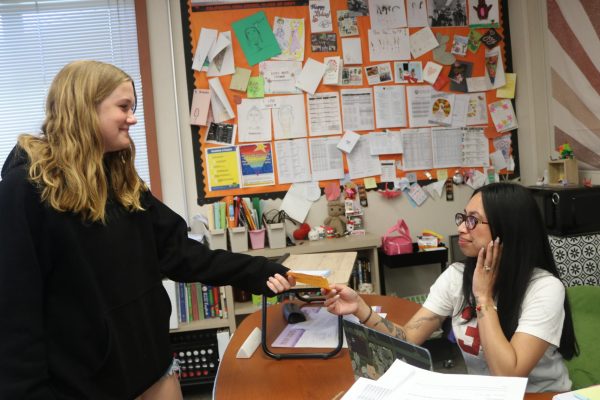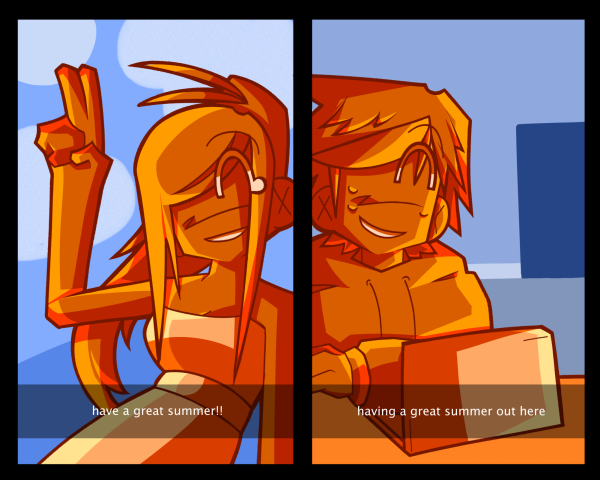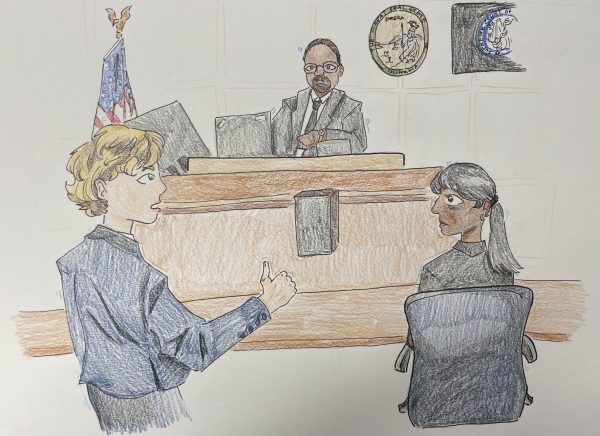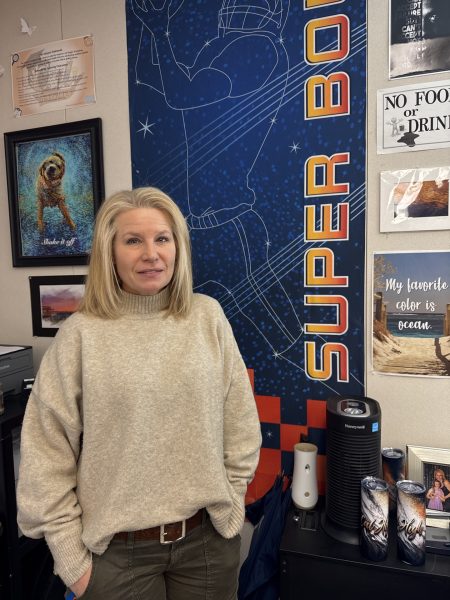Students create app against political bias
Nütrl rates news articles’ prejudice
Mihir Arya, left, and Rishabh Jhamnani show off their Nütrl app logo on a Macbook.
All-nighters and Spanish helped create an app.
Cal High seniors Mihir Arya and Rishabh Jhamnani created Nütrl, an app aimed at preventing political polarization by giving a score to an article based on its bias toward either the liberal or conservative side.
“[The app] is helpful because before you even read an article you know OK, this is 40 percent bias towards the conservative side, or 50 percent bias towards the liberal side,” Arya said.
The pair stayed up until 5 a.m. on the day that their submission was due completing work on Nütrl for the Congressional App Challenge, a nationwide competition that encourages teams to create the best app.
“The name ‘Neutral’ was OK, but we wanted to spice it up a bit,” Jhamnani said.
So they came up with Nütrl.
“We originally took the letters ‘ntrl’ but it looked too similar to the word ‘control’,” Arya said. “But as we learned in Spanish, the accent in ü makes an ‘oo’ sound, so from there we got the name Nütrl.”
The plan to create the app first emerged when the pair noticed a lot of hostility between liberals and conservatives.
“We looked more into why there was animosity between the parties, and we figured out it was due to political polarization,” Jhamnani said.
Political polarization is when an individual favors a specific side of a policy because of their identification with a specific party.
For example, a person who identifies as a liberal may be in favor of abortion as the more liberal Democratic party believes the rights of an individual is important. On the other hand, a person who identifies with the more conservative Republican party may oppose abortion because it’s generally viewed as pro-life.
Arya and Jhamnani say they have found that social media contributes to people receiving biased information that affects their perspective on a topic. Additionally, it can further contribute to political polarization by enforcing already biased views.
To combat misinformation and give users an unbiased picture, Arya and Jhamnani came up with the idea of Nütrl.
“So we thought, ‘What if we start exposing people to more diverse information that also gives them the freedom to choose what content they view with the information our app would provide?’” Arya said.
Using Nütrl, users can find the political bias score of any website by entering the website’s URL into the app’s search bar.
Students such as senior Bonisha Maitra, who have used the app, believe that Nütrl is especially useful for keeping a clear understanding of the truth in today’s tense political climate.
“I definitely think there’s a huge division in terms of the society we live in today where there’s miscommunication,” Maitra said. “There’s also a lack of perspective to see what’s more biased. I feel like [Nütrl] has potential to help me in the future, like for research papers and just my own knowledge to ensure that I myself am not biased and neither are the educational outlets that I’m using.”
Senior Kushal Dave thinks Nütrl’s features could be further improved. He said it also would be useful if a new feature was added that analyzed the level of bias in quotes from political figures.
“If the topic was about, like Roe v. Wade or something, and then had a specific quote by a Republican senator or something, and like, presented that quote to me that I could use, that’d be helpful,” Dave said.
Arya and Jhamnani are in the process of adding more functionality to their app.
“Right now, we have a tool where you can enter the website URL in the search bar and you could get a score on the bias of the website,” Jhamnani said. “We want to expand on this tool so the user could input plain text and the app would give a bias score.”
With a lot of misinformation on social media and news outlets, Nütrl’s goal is to make everyone’s lives easier by preventing biased views from obscuring a person’s perception of real-world topics. The next time students want to know how biased an article is, they can consult with Nütrl to find out.

Junior March Chalasani returns for his third year with the Californian newspaper staff. In his free time, he enjoys hanging out with friends, hiking, playing...

Junior Vedant Desikamani is back for his third year with The Californian. This is his second year as an editor. He worked as an Assistant News Editor last...
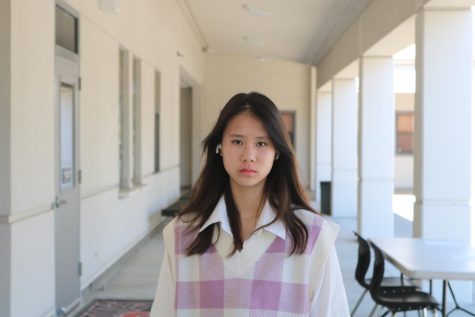
Senior Christine Wang has no idea what her role is, but is happy to be a part of the Californian. She often struggles to do most of her work because she...



